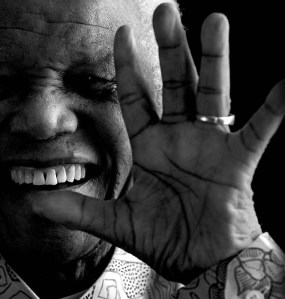
Internet giant Google has announced it will be donating a total of $2.5 million dollars in support of creating digital archives to preserve documents, images, correspondence, and other materials in digital archives that preserve the details of South Africa’s arduous journey from apartheid to democracy. The monies will be split equally between the Nelson Mandela Foundation Centre of Memory and the Desmond Tutu Peace Center. The funds will be used to help collect and digitize documents, images, audio, and video related to the lives of both Mandela and Tutu, as well as ensuring people in poor and outlying communities can access the material. Google will also be lending its digitization expertise—gleaned through its Google Books projects as well as other efforts—to help the archives get online.
“At Google we want to help bring the world’s historical heritage online—and the Internet offers new ways to preserve and share this information, in Africa and elsewhere,” wrote Google’s Daniel Lederman and Julie Taylor.
Google also announced it has recently awarded smaller grants to educational groups, including South Africa’s Tertiary Education and Research Network (TENET), the Nigeria ICT Forum, and the University of Oregon’s Network Startup Resource Center.
When complete, the Mandela project will include Mandela’s correspondents with colleagues, friends, and family, his prison diaries, and notes he made while negotiating the end of apartheid in South Africa. The initial focus will be on making the archive available in South Africa, with access to global audiences planned for the future.
[Image: Nelson Mandela Foundation Centre of Memory]
Editors' Recommendations
- 5 web browsers you should use instead of Google Chrome or Edge
- Google’s AI just got ears
- How to remove an account from Google Smart Lock
- Google brings AI to every text field on the internet
- Google just settled a $5B privacy suit involving Chrome browser


